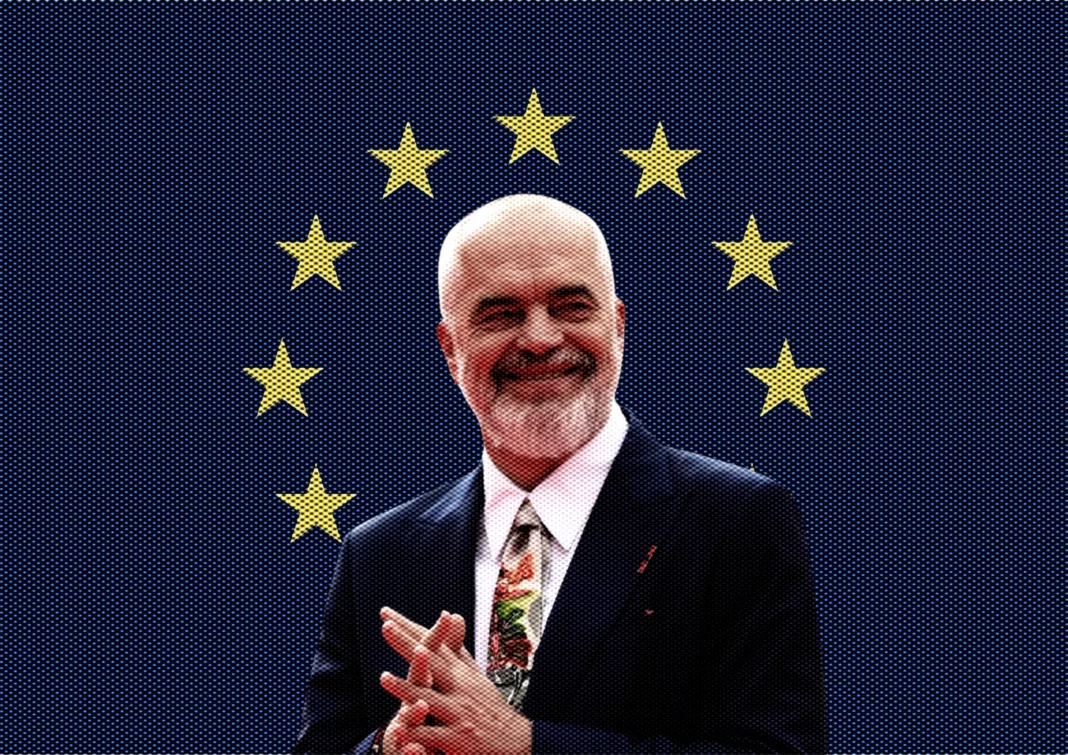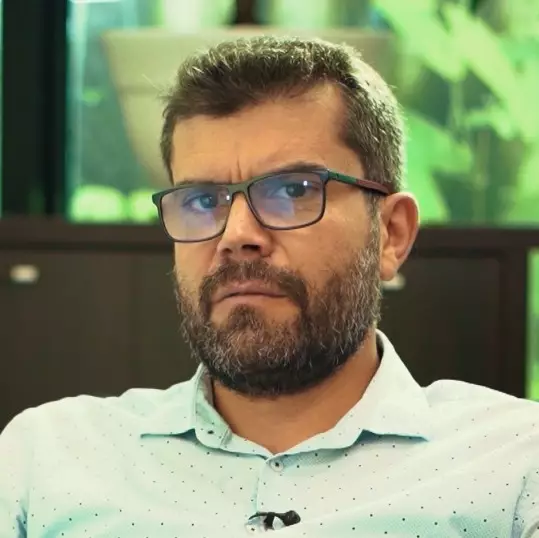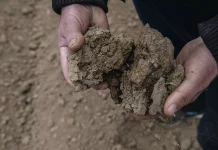At the beginning of the campaign for his fourth term, Prime Minister Edi Rama delivered a speech dominated by praise for the government’s claimed achievements and several promises for the next four years. A simple analysis of this speech raises questions about the campaign’s priorities and their connection to the citizens’ reality.
One striking aspect from the start is that the speech was not prepared to address the usual and ‘boring’ everyday issues such as drinking water or prices, but rather to project a broader horizon, one focused on going beyond the country’s borders, possibly as a way to avoid internal discussions.
Faktoje decided to analyze the Prime Minister’s speech by identifying the words he used most frequently and those he used less often in presenting the program for the fourth governing term.
The words most frequently heard during the nearly two-hour speech were ‘European’ (65 times) and ‘Passport’ (34 times), which form the core of the socialists’ new political slogan. This vision of European integration was presented as the next historic success expected to be completed during the fourth term.
This is a temptation for Albanians, ironically including the chance to leave Albania for EU countries, political analyst Ermal Hasimja noted for Faktoje. Beyond that, ‘
Albania 2023 in the EU’ also carries another electoral calculation, according to him.
‘It’s a promise that can be recycled again in 2029, and no one can accuse them of failing to keep it because there will still be a year left until 2030. Moreover, if it is not achieved, it can again be justified with the idea that the government did its duty, but the EU didn’t want it’ – Ermal Hasimja, political analyst.
Journalism professor Lufti Dervishi also sees the ‘European passport’ as a propaganda tool, rather than an accountable form of communication expected from an electoral program.
‘The excessive repetition of words like ‘European’, ‘passport,’ or ‘fourth mandate’ is aimed not at informing citizens but at emotionally and politically mobilizing the electorate’. said Lufti Dervishi, lecturer.
The phrase ‘when we took office’ was equally prominent (29 times), reminding that referring back to the period before 2013 remains part of the electoral script. Right after, derogatory language was noticeable. The Prime Minister used the term ‘këneta’ (swamp) 20 times in the speech.
However, words that concern the everyday lives of citizens and the basic standards of true European living, such as ‘water’ (once), ‘prices’, ‘food security’, ‘subsidies’ and ‘farmer’, were barely mentioned or not at all.
‘At a time when food security, agriculture, and living standards are essential for European integration and the welfare of citizens, their absence in the speech is alarming. This reveals a lack of concrete vision and a tendency to avoid topics that require structural efforts, favoring slogans and symbols that are easier to consume through the media.’ -Lutfi Dervishi, lecturer
According to Dervishi, this signals negligence regarding the core policies needed for the country’s long-term development.
Ermal Hasimja sees the outcomes of the previous three governments themselves as an obstacle to making concrete promises.
‘He cannot make concrete promises about key living conditions such as water, health, or education, because it would mean repeating unfulfilled promises’, Ermal Hasimja argued.
For the citizen, this speech is not a plan for the next four years, but a marketing brochure for a product still in development, or as journalist Lutfi Dervishi described it, ‘a reflection of what the electorate wants to hear rather than a real reflection on problems that need solution’.











